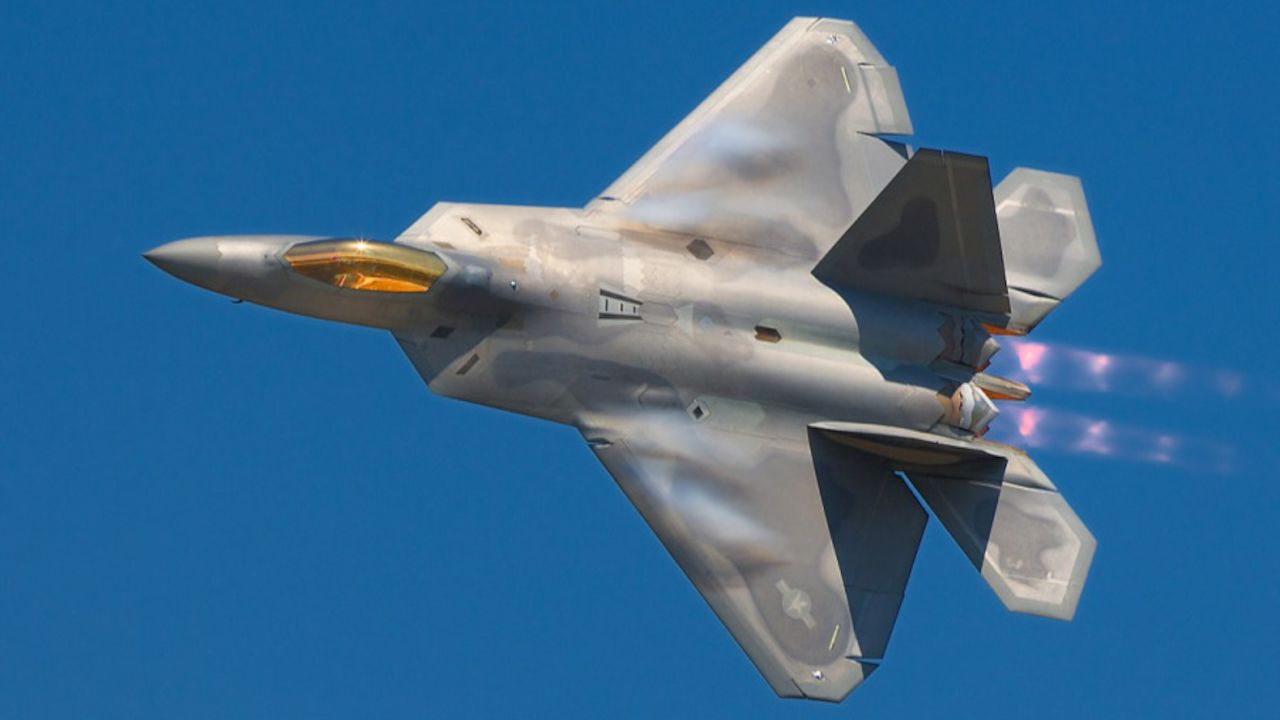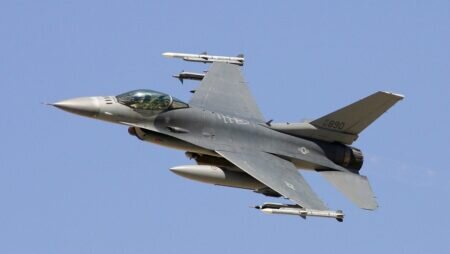After the acceptation to sell F-35 Lightning IIs to the United Arab Emirates, the U.S. has now given the green light for the sale of some 50 F-22 Raptors to Israel for roughly $10.4 billion, an unprecedeted decision, as this advanced fighter jet has never been sold to a foreign country. By doing so, the U.S. is implementing its commitment to guarantee a military superiority to Israel.
U.S. Secretary of Defense Mark Esper told Israeli officials during a visit to Israel this week that the Trump administration has approved selling F-22 Raptors to the Jewish state, according to a Friday 30 October report in the Saudi-owned Asharq Al-Awsat newspaper citing senior sources in Tel Aviv, Trump has cleared the sale of the F-22 Raptor with precision-guided bombs to Israel. The Times of Israel Staff and Judah Ari Gross report.
Such a sale would first require the U.S. Congress to overturn a current law barring Washington from exporting the F-22. The House of Representatives passed the law in 1998 over concerns that the nigh-unparalleled stealth technology in the F-22 could fall into the hands of Russia or China if the aircraft were sold abroad, including to Israel.
Israeli defense officials asked to buy the F-22 to maintain Israel’s qualitative military edge in the region after the U.S. agreed to sell F-35 fighters to the United Arab Emirates, the Israeli daily Haaretz reported on Tuesday, November 3. Israel had previously expressed interest in buying this aircraft but the U.S. declined. The US halted production of the fighter in 2011 and legally barred its sale to foreign countries. The White House updated Congress on Thursday, October 29, on its intent to sell F-35s to the UAE.
The Lockheed Martin F-22 Raptor is a single-seat, twin-engine, all-weather stealth tactical fighter aircraft. The result of the USAF's Advanced Tactical Fighter (ATF) program, the aircraft was designed primarily as an air superiority fighter, but also has ground attack, electronic warfare, and signal intelligence capabilities. The prime contractor, Lockheed Martin, built most of the F-22's airframe and weapons systems and conducted final assembly, while Boeing provided the wings, aft fuselage, avionics integration, and training systems.
The aircraft was variously designated F-22 and F/A-22 before it formally entered service in December 2005 as the F-22A. Despite its protracted development and various operational issues, USAF officials consider the F-22 a critical component of the service's tactical air power. Its combination of stealth, aerodynamic performance, and avionics systems enable unprecedented air combat capabilities.
Service officials had originally planned to buy a total of 750 ATFs. In 2009, the program was cut to 187 operational production aircraft due to high costs, a lack of clear air-to-air missions due to delays in Russian and Chinese fighter programs, a ban on exports, and development of the more versatile F-35. The last F-22 was delivered in 2012.
Source: Airrecognition









